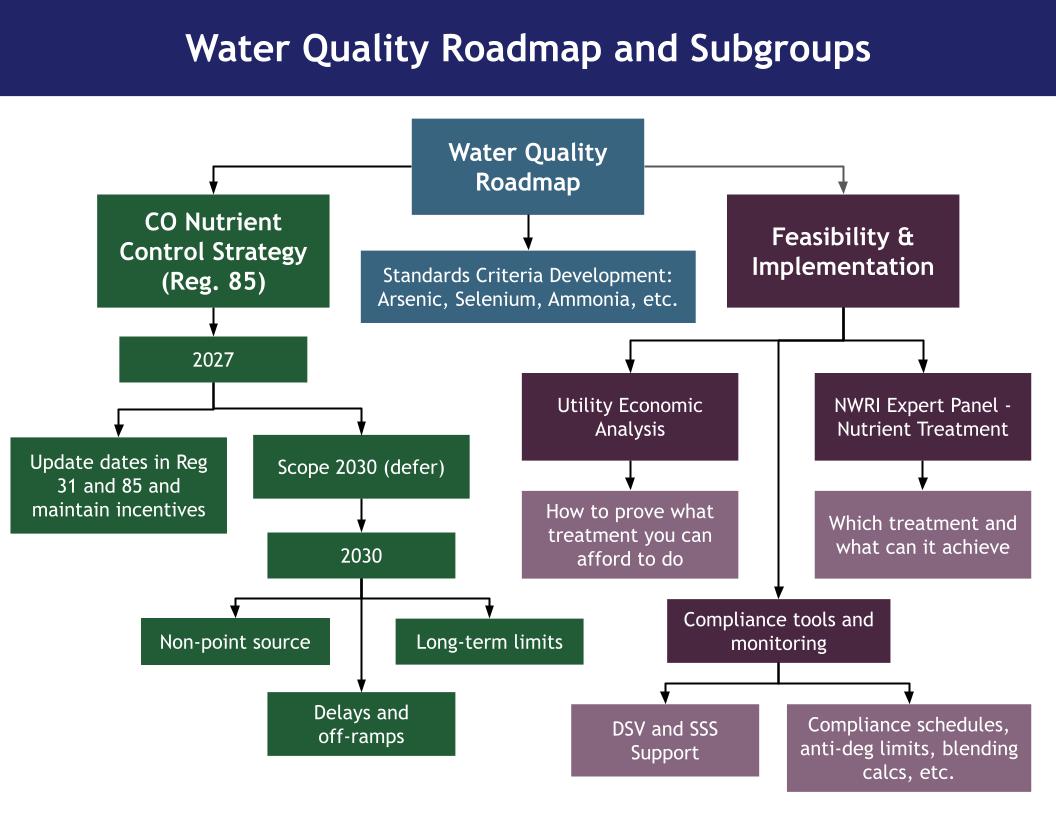Water Quality Roadmap

Colorado’s Water Quality Roadmap (WQ Roadmap) is an effort aimed at developing criteria, standards, and innovative statewide regulations to protect and improve water quality. Developed with input from diverse stakeholders, the WQ Roadmap guides the Water Quality Control Division's work across all areas of the Clean Water Program.
What is the Water Quality Roadmap?
Practically, the WQ Roadmap is a long-term planning tool that helps the Division strategically update water quality standards and support implementation across Colorado. It helps coordinate work across monitoring, standards development, permitting, nonpoint source efforts, and engineering.
Roadmap goals include
- Developing criteria and standards for key pollutants (e.g., nutrients, selenium, ammonia, and arsenic).
- Strategically planning how to apply those standards across the state of Colorado.
- Building in time for engagement, feasibility evaluation, and practical implementation planning.
Standards being revised
CDPHE is working to develop or revise the water quality standards for ammonia, arsenic, nutrients, and selenium.
How to get involved
Meeting materials, including agendas, presentations, and a copy of the meeting recording, will be stored in this public folder.
2026 Water Quality Roadmap Meetings - Register to attend on Zoom
- Thursday, March 5, 2026 | 10 to 11:30 a.m.
- Thursday, June 18, 2026 | 10 to 11:30 a.m.
- Wednesday, Sept. 23, 2026 | 1 to 2:30 p.m.
Sign up to receive notifications about this effort, and scroll down to select “General - Water Quality Roadmap.”
- General questions | cdphe.commentswqcd@state.co.us
- Specific questions | WQ Roadmap contact list
